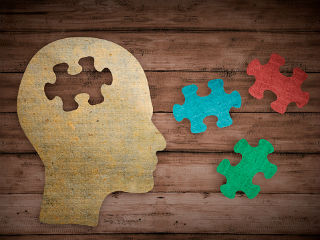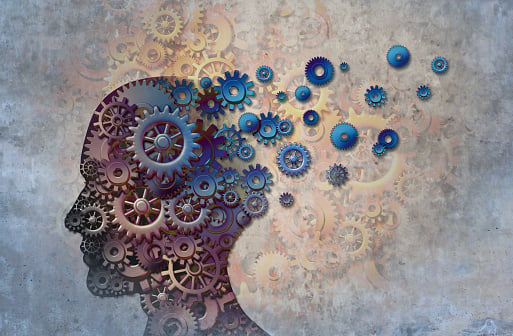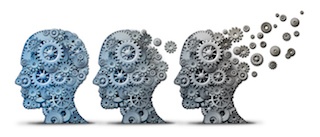A lot of things change as we age: Our interests may change, our circle of family and friends may evolve, our priorities may shift.
Our bodies also change, and we may find that it takes longer to do a physical activity or that we have to deal with different ailments. Our brains change, too. You might find it takes longer to process information or you can’t recall things as easily as you once could.
Dealing with changes in our cognitive abilities can be anxiety-inducing. What’s normal? What’s not? How can you ensure your brain stays as healthy as possible?
Let’s take a look at common cognitive changes older adults may experience as they age and explore what is different about dementia, Alzheimer’s Disease and memory loss.
Mild Cognitive Impairment
With mild cognitive impairment, a person has trouble with memory or other core brain functions. These issues aren’t severe enough to interfere with daily life or be noticed by others. This kind of impairment usually is apparent on tests of mental function. Though people with mild cognitive impairment have an increased risk of developing Alzheimer’s or dementia—especially if they’re experiencing memory problems—it’s important to note not everyone will develop these conditions. In addition to aging, diabetes, high blood pressure, smoking, high cholesterol, alcohol use, diet and exercise and depression all can increase your risk for developing cognitive impairment.
Dementia
It is a common misconception that dementia is a disease. It is not. Rather, it is a combination of symptoms that can be caused by a variety of brain disorders. Unlike mild cognitive impairment, dementia symptoms will interfere with a person’s daily life and affects these core brain functions:
- The ability to learn and recall information
- The ability to write, speak or understand words
- The ability to understand or use symbols or judge the placement of objects
- The ability to focus on a task or to plan or reason
As a result of these symptoms, a person’s personality may change, they may not be able to control their emotions, or they may see things that are not there. It is important to note that though our brains change as we age, dementia is not a normal part of the aging process.
If you or someone you know is experiencing symptoms of dementia or are worried about your cognitive abilities, talk with your doctor.
Alzheimer’s Disease
Alzheimer’s disease is a progressive illness. It damages nerve cells in the brain, and patients see symptoms get worse over time as more and more cells are destroyed. This often leads to forgetfulness that affects daily life, personality changes, mood changes, confusion, repeating things and more. Treatments are available for Alzheimer’s disease and are most effective when the disease is identified in its early stages.
Talking to Your Doctor About Brain Health
If you or someone you know is concerned about cognitive health, the first step is talking with a doctor. Some questions to ask include:
- Is memory loss a normal part of aging?
- How do I know what is normal when it comes to cognitive function as I age?
- What can cause memory loss?
- What tests can detect memory loss?
- How can I improve my memory?
- Are there treatable conditions that can affect memory?
- How do you treat dementia?
- How can I prevent getting dementia?
Though some changes in cognitive abilities are part of the aging process, some are not. It is important to know the differences between mild cognitive impairment, Alzheimer’s disease and other cognitive disorders to maintain brain health.













